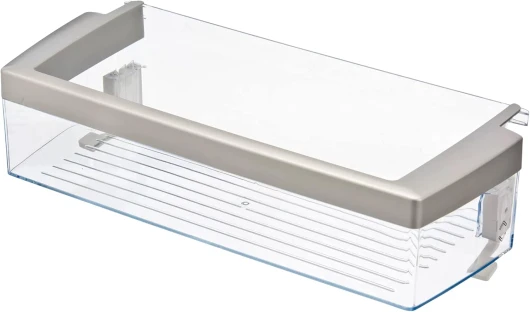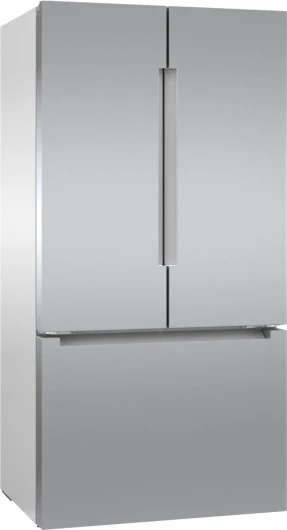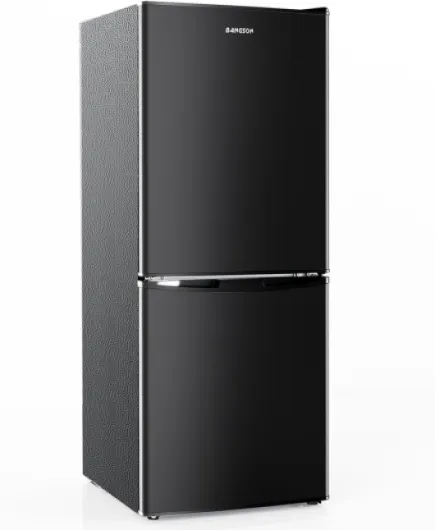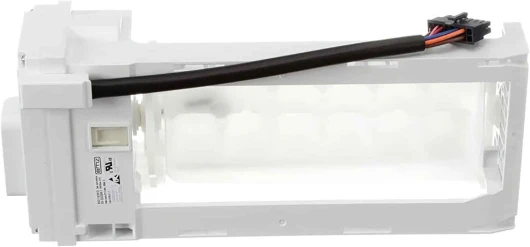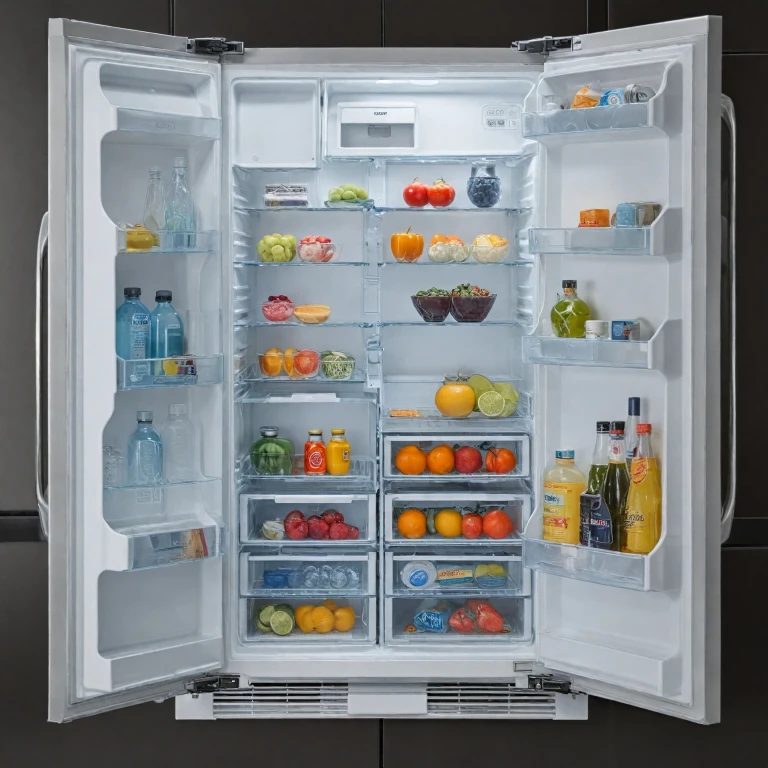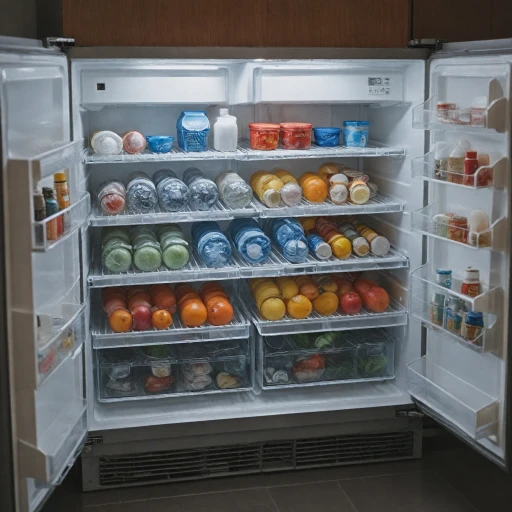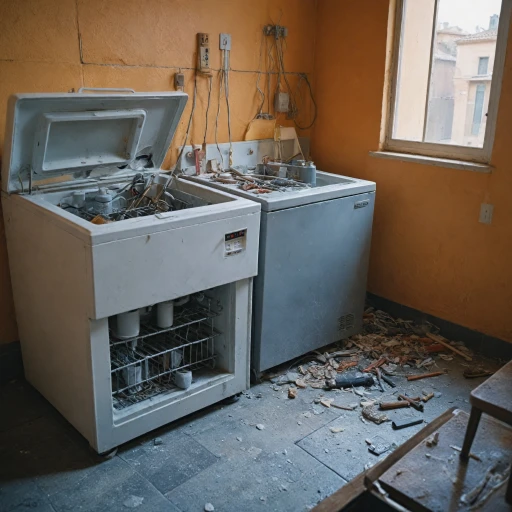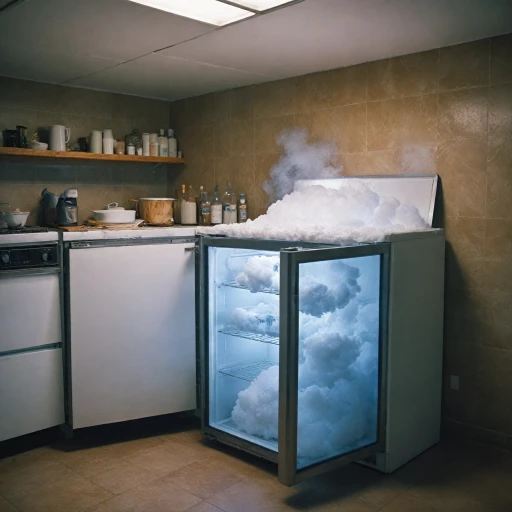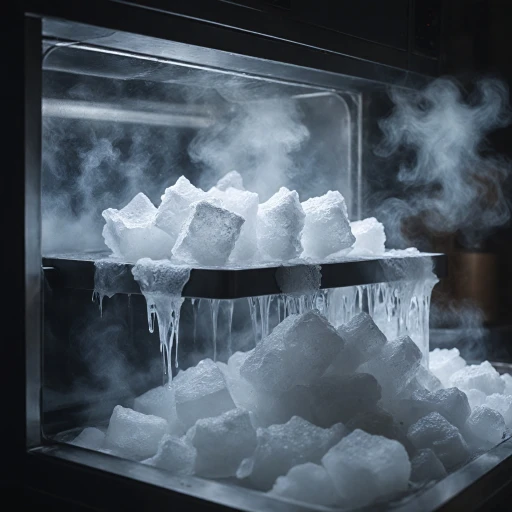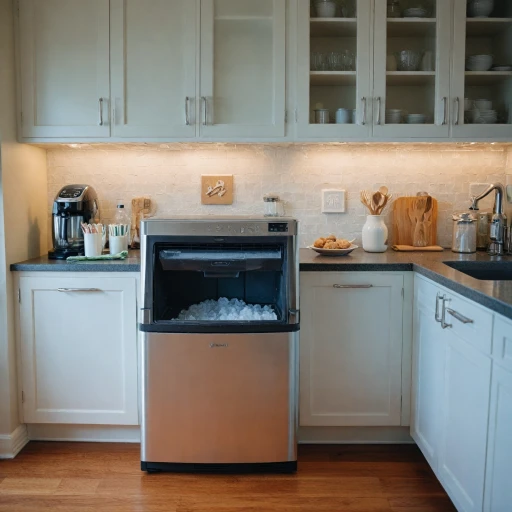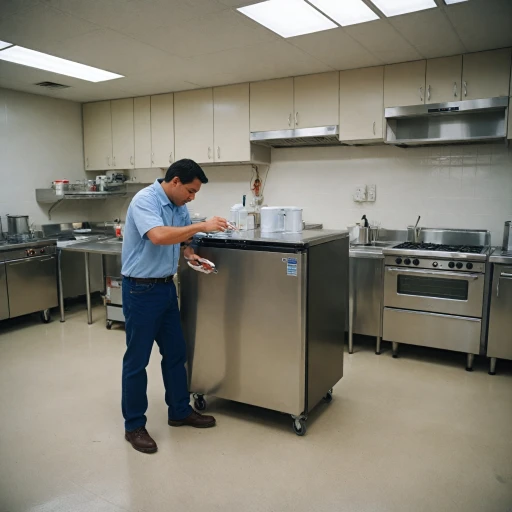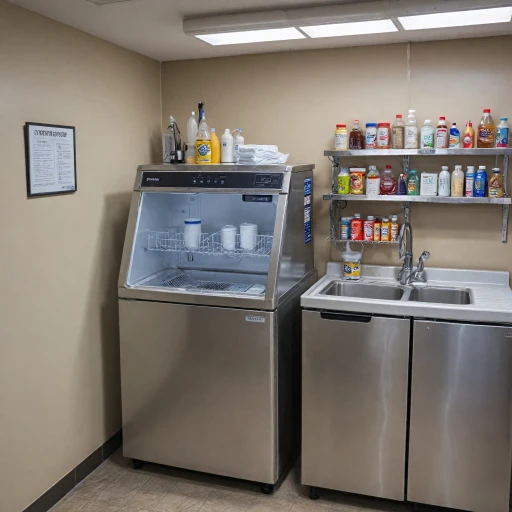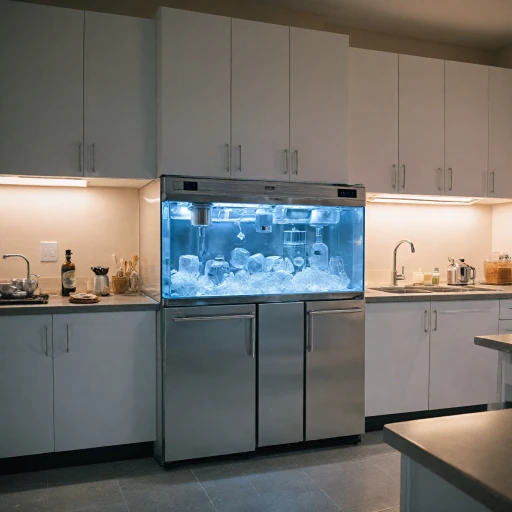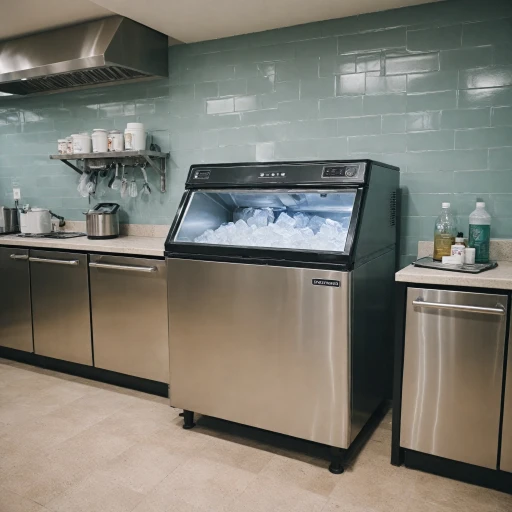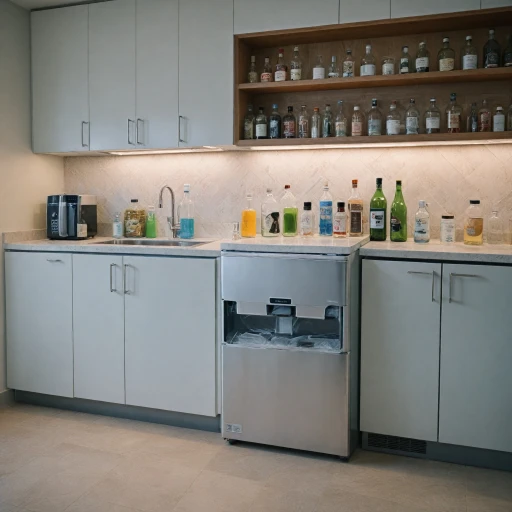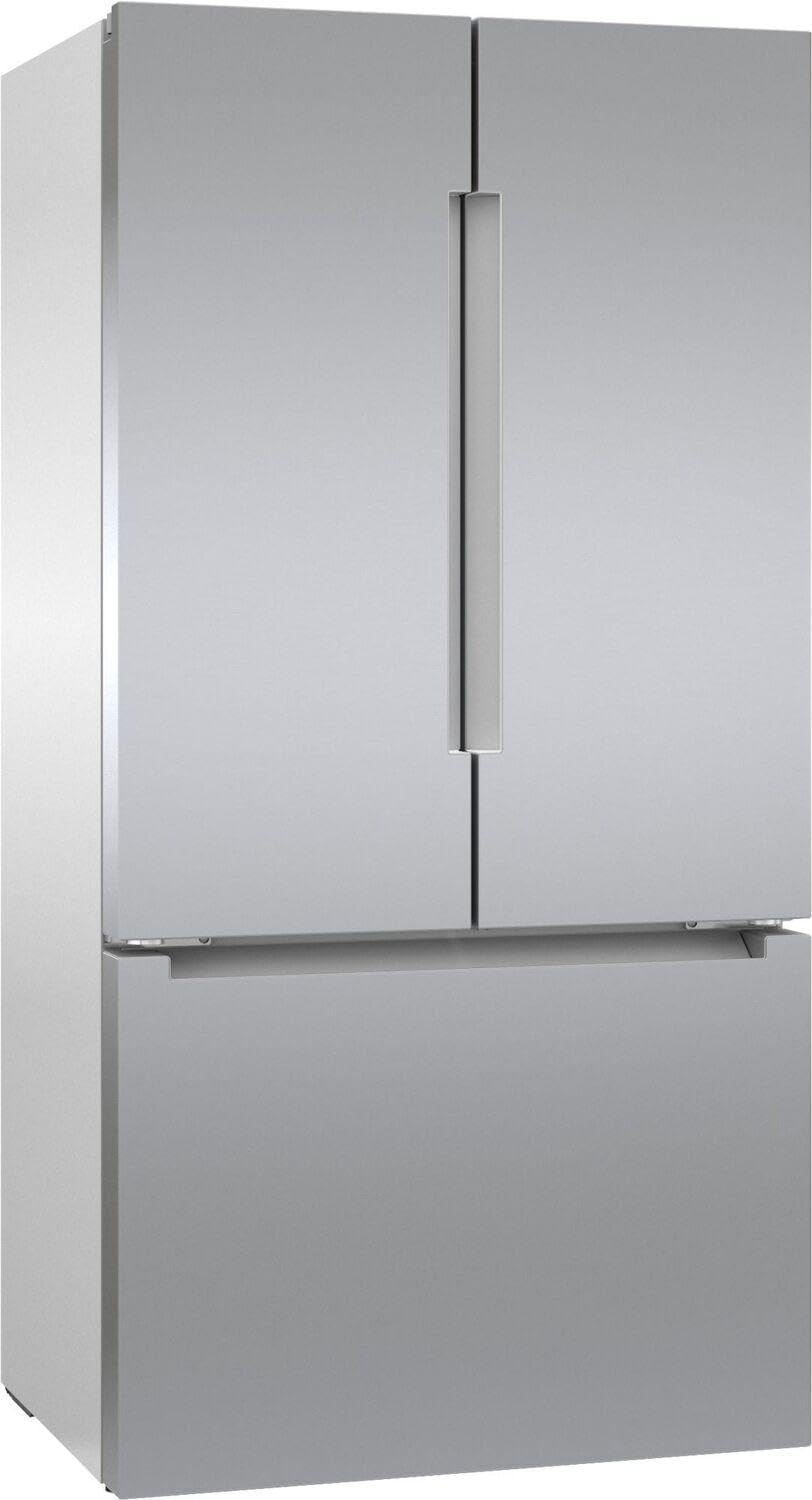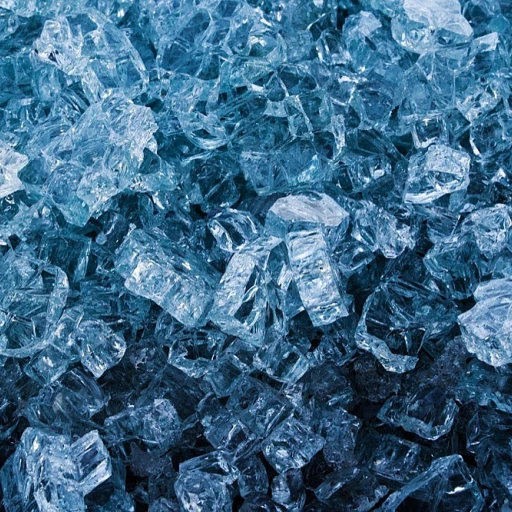
Understanding the Ice Maker Mechanism
How the Ice Machine Operates
Understanding the mechanics of your Bosch refrigerator’s ice maker assembly can help you pinpoint any potential issues before they become major problems. The main components involved in ice production include the water supply, inlet valve, and the control board which work together harmoniously.
The water inlet valve plays a pivotal role by allowing water to flow into the maker when it receives an electrical signal. Proper water pressure is crucial to ensure the valve functions correctly; otherwise, the inlet may not open to let the water in.
The sensor and control assembly governs the ice maker's operations by monitoring conditions like freezer temperature. It sends signals to start the ice-making process when the necessary parameters are met. Meanwhile, the door switch ensures that the maker won't operate while the refrigerator door is open.
Water flows through the inlet, gets frozen into ice cubes, and is typically pushed into a bin. If any part of this sequence fails, your bosch ice maker might not perform optimally. You might need to check the manufacturer guidelines for deeper understanding and upkeep strategies.
By familiarizing yourself with this system, you'll be more adept at differentiating between common problems that might require simple fixes—such as adjustments in water supply or cleaning the water filter—and issues necessitating professional intervention. This knowledge can save you time and potentially the cost of unnecessary repairs.
Common Reasons Your Bosch Refrigerator Isn't Making Ice
Identifying Common Ice Maker Issues in Your Bosch Refrigerator
Understanding the typical reasons why your Bosch refrigerator might not be making ice can save you from unnecessary frustration. Let's explore common issues that could be affecting your ice production.- Water Supply Concerns: Ensure that your water supply is active and the valve is fully open. Low water pressure can hinder the Bosch ice maker's performance. Verify that the inlet valve is functioning correctly and that the water inlet is not blocked or damaged.
- Temperature Setbacks: The freezer temperature must be sufficiently low to produce ice. If the temperature control settings are too high, the ice maker won't produce ice efficiently. Aim for a setting around 0°F (-18°C) for optimal ice production.
- Water Filter Issues: A clogged water filter can restrict the water flow into the ice maker assembly, leading to reduced ice production. Regularly check the condition of your water filter to ensure it isn't impeding flow.
- Door Switch Problems: When the refrigerator door is open, the door switch cuts power to the ice maker to conserve energy and enhance safety. If this switch is faulty, it might not detect when the door is closed and prevent the ice maker from working.
- Control Board Malfunctions: The control board is the brain of your Bosch refrigerator's ice maker. If it's defective or malfunctioning, it could disrupt the normal working process of ice production.
- Inlet Valve Faults: Water inlet valve issues are known to cause problems in ice makers. The valve needs adequate pressure to open and allow water into the maker assembly. If there is insufficient water pressure, the valve may not function properly.
Step-by-Step Troubleshooting Guide
Step-By-Step Troubleshooting Techniques
Ensuring your Bosch refrigerator is consistently making ice can be effortlessly managed once you identify the root cause of the problem. Here’s a systematic guide to diagnosing and remedying any ice maker issues you're facing:- Check the Water Supply: Confirm that the water line connected to your refrigerator is solidly attached and not obstructed. Examine the water supply valve for leaks or blockages.
- Evaluate the Water Pressure: If your Bosch refrigerator’s ice maker isn't working, it might be due to low water pressure. The optimum water pressure should be around 20 to 120 psi. An inadequately pressurized supply won’t prompt proper ice production.
- Inspect the Water Inlet Valve: This valve opens and closes to deliver water to the ice maker. Over time, the valve can clog with mineral deposits. A faulty or blocked valve means the water won’t flow adequately.
- Examine the Water Filter: Your refrigerator ice quality depends on a clean filter. A clogged water filter restricts water flow, hindering ice production. Replace it every six months to ensure purity.
- Assess the Door Switch: Your Bosch ice maker halts its function when the refrigerator door is open. If the door switch isn’t operating properly, it could signal that the door is always open, preventing the maker assembly from doing its job.
- Verify the Freezer Temperature: Ice makers function efficiently when freezer temperature is at 0°F (-18°C). If it’s warmer, adjust the control settings since the ice won’t freeze quickly enough.
- Scrutinize the Control Board: A malfunctioning control board disrupts electric signals sent to the ice maker. If other potential solutions fail, inspect and, if necessary, replace the control board.
- Inspect the Ice Maker Assembly: Various components such as the motor or mold thermostat could lead to Bosch ice maker issues. If elements within the assembly aren't working, it might be necessary to replace the entire unit.
- Prevention of Mold in Your Ice Maker: Mold can contaminate ice crystals and impair the ice maker's efficiency. Regular cleaning and maintenance can alleviate such a problem effectively.
When to Call a Professional
Recognizing When to Seek Expert Help
At some point, attempting to resolve the ice maker issues might seem to be going nowhere. Recognizing when it's time to call in a professional is essential to prevent further damage. If you've gone through the thorough troubleshooting guide yet your Bosch refrigerator's ice production still hasn't resumed, consider the following scenarios where professional expertise might be required:- Non-functioning Control Board: If all components including the inlet valve, switch, and temperature controls appear to be functioning well, the control board may be at fault. Diagnosing or replacing a control board is best handled by a certified technician.
- Consistently Malfunctioning Ice Maker Assembly: The entire ice maker assembly might require replacement if it has frequent or unresolved issues even after step-by-step diagnostics.
- Persistent Water Supply Problems: Should there be unresolved issues with water supply lines, such as leaks or improper pressure despite changing the water filter, professional help is advised to check water lines effectively.
- Complex Inlet Valve Concerns: In cases where the inlet valve or water inlet appears faulty and beyond simple repairs or checks, calling in a professional to examine the valve is prudent.
- Continuous Water Pressure Issues: If pressure control is beyond adjustment and ice cubes are not forming due to low water pressure, a professional might have to assess the underlying causes.
- Recurrent Ice Cube Problems: Troubles with the maker working, particularly with no clear temperature, door switch, or valve issues, might necessitate expert assessment.
Preventative Maintenance Tips
Ensuring Optimal Performance of Your Ice Maker
Maintaining your Bosch refrigerator's ice maker is crucial for consistent ice production. By adhering to some preventative maintenance tips, you can avoid common issues and ensure your ice maker works efficiently.- Regularly check the water filter: Ensure the water filter is clean and replace it every six months to maintain good water quality and flow. A clogged filter can disrupt ice production.
- Inspect the water pressure: Adequate water pressure is vital for the inlet valve to operate correctly. Check the water supply line for any kinks or blockages that may affect pressure.
- Examine the inlet valve: Regularly inspect the water inlet valve for any signs of damage or wear. The inlet valve must open and close properly to supply water to the ice maker.
- Monitor the freezer temperature: Keep the freezer at an optimal temperature, around 0°F (-18°C), to ensure quick ice formation. Deviations might slow down or halt ice production.
- Keep the ice maker assembly clean: Regularly clean the ice maker assembly to prevent the build-up of ice or debris that could hinder functioning.
- Check the door switch: A malfunctioning door switch can prevent the ice maker from operating. Verify that the switch is working properly to ensure the ice maker isn't stopped when the refrigerator door is closed.
Frequently Asked Questions
Frequently Asked Questions about Bosch Ice Maker
Why is my Bosch ice maker not producing ice even though the water supply is connected?Several factors could cause this issue, including a blocked water inlet valve, an improperly set freezer temperature, or a malfunctioning door switch that prevents the ice maker assembly from starting. Ensure that the water pressure is sufficient and check the water filter for any blockages that might be hindering the water flow. How do I reset my Bosch refrigerator ice maker?
The reset procedure usually involves turning off the appliance and then turning it back on. You can also check the control board for any settings that might need adjusting. If problems persist, consulting a step-by-step troubleshooting guide may help address specific issues. What can cause Bosch ice makers to produce small or hollow ice cubes?
Inadequate water pressure or a partially clogged water filter can lead to this problem. Make sure to check the water supply line and inlet valve to ensure there is no obstruction affecting the water flow. Additionally, verifying that the freezer temperature is set correctly is crucial for proper ice production. Can changes in freezer temperature affect my ice maker's performance?
Yes, the freezer temperature significantly affects ice production. It should be set to the recommended level suggested by Bosch to ensure efficient functioning. Sudden fluctuations or incorrect settings may hinder ice-making capabilities. When should I replace the water filter in a Bosch refrigerator?
Bosch recommends replacing the water filter every six months or as needed based on your water quality. Regular replacement ensures the water supply to your ice maker remains clean, preventing any issues with ice quality. Why is the ice maker making noise?
Some noise is normal due to the ice dropping into the collector or the water valve opening and closing. However, unusual or loud noises might indicate a problem with the ice maker assembly or the water inlet valve needing examination. What preventive steps ensure my ice maker keeps working efficiently?
Regular maintenance includes checking the water inlet valve, replacing the water filter periodically, and ensuring that the freezer temperature is appropriately set. Such practices help in maintaining optimal ice production and prolonging the lifespan of your Bosch ice maker.
-logo-retina.png)
